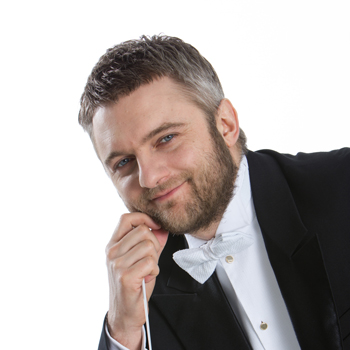 Bournemouth Symphony Orchestra
Bournemouth Symphony Orchestra
Kirill Karabits: Conductor
Sunwook Kim: Piano
Rachmaninov: Piano Concerto No. 3 in D minor
Prokofiev: Symphony No. 6
THE packed audience at the Lighthouse burst into prolonged and enthusiastic applause last night before a note was played. This was at the announcement that the newly-designated Chief Conductor Kirill Karabits had agreed a new rolling contract that will see him in charge of the orchestra ‘to 2018 and beyond’. Given that previous Principal Conductors back to the 1970s have tended to stay for about six years, and that Karabits is already rounding off his sixth season in charge, this is exciting news indeed, evidence (if more were needed) of the very special relationship between this outstanding orchestra and its 38-year-old conductor.
The diffident but smiling Karabits was greeted with more rapturous applause when he appeared with Sunwook Kim to tackle the legendary ‘Rach 3’. The Korean pianist is completing a year’s residency with the orchestra and this was his first-ever public performance of an extremely challenging score: here are just three bars from the first movement cadenza if you’d like to try it at home:

Kim’s technique was dazzling and his tone clean and silvery. For me, the first movement burst into a different dimension of drama in the cadenza, when the piano emerges solo from the orchestral accompaniment, briefly dueting with winds and horn. The performance emphasised the lush late-romantic melancholy of the piece: it was composed at the same time as late Mahler, and at times sounded like it.
For an encore, Kim borrowed Karabits’s baton to conduct the orchestra in a suitably graceful performance of the Pas de Deux from Tchaikovsky’s Nutcracker: perhaps he aspires to follow such as maestros as Ashkenazy and Barenboim from the piano stool to the podium. Karabits, watching smilingly from behind the second violins seemed to approve heartily of this trespassing on his core repertoire.
“Now we are rejoicing in our great victory, but each of us has wounds that cannot be healed. One has lost those dear to him, another has lost his health. These must not be forgotten.” This is what Prokofiev said of the spirit of his Sixth Symphony, written in 1947 in the aftermath of the Second World War in which the Soviet Union suffered some 25 million deaths and unimaginable destruction. This sombre score got Prokofiev into yet more trouble with the authorities: Stalin wanted rejoicing in the victory, not grief at the wounds. The palate of orchestral sounds Prokofiev uses in this unjustly neglected symphony is very dark, with violas, bass drum, piano and tuba underpinning the grim and brooding musical material. Tuba player Andy Cresci had a very busy night, often playing with the string basses rather than with his fellow-brass players, and in the third movement dueting with Anna Pyne’s flute in a rarely-heard combination. I can pay the orchestra no higher complement than to say that they sounded like Russians.
PJ